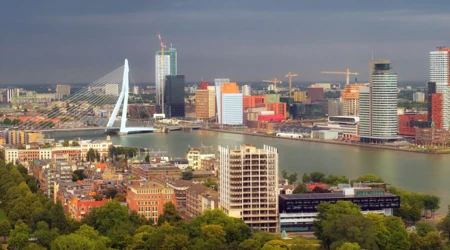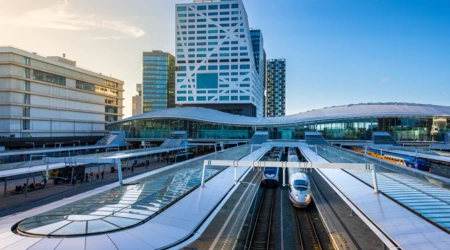Economic development strategy
The economic structure of a city, region or country is continuously moving. Shifting economies at a global scale, increasing competition between regions and technological and labor market developments within economic sectors accelerate changes and raise new challenges for policy makers.
We are is involved in a large number of regional and urban area development projects. These vary from the development of City Centers and Public Station areas and the development of realistic execution plans for restructuring of outdated business sites and the (re)development of a city neighborhood (living and working areas) in so called “redevelopment zones”.
Our advisors can fulfil different roles in all stages of urban area development: from the idea phase (drafting a master plan with explicit attention to economic feasibility), through a thorough execution strategy (agreements with stakeholders in question to realize the drafted plans) to implementation and actual realization of plans.
Our services include:
- Analysis of the economic profile and its current strengths and weaknesses
- Analysis of relevant trends: for example, how can innovation policies enhance cluster development and how to respond to demographic and labor market shifts?
- Development of a challenging long-term vision for the next ten to fifteen years that can be characterized as both realistic and ambitious
- Establishing concrete objectives and milestones
A build up strategy can be translated into an economic action plan or roadmap looking forward to the next five years. Actions are formulated for each strategic objective focusing for example on:
- Reinforcing the economic structure and the development of clusters to the next level
- Offering enough space of the right quality to companies (business sites)
- Strengthening innovation and technological networks
- Improving educational opportunities and the labor market
- Promotion and marketing
- Organizational structure and financial budgeting for the economic roadmap
Pursuing a successful spatial economic policy calls for regular analysis of what the policy has delivered or could deliver. It is for this reason that BCI is often involved in policy and project evaluations as well. In our approach we combine in-depth expertise (for example sector and cluster knowledge, real estate knowledge, marketing experience), the development of innovative (real estate) concepts and using analytical tools such as cost benefit analysis and business case development.
Our added value in short:
- Combination of economic, (technological) cluster, real estate and marketing expertise
- In-depth market insights
- Strong network within the national and regional authorities throughout Europe
- Cost benefit analysis and business case development
The economic structure of a city, region or country is continuously moving. Shifting economies at a global scale, increasing competition between regions and technological and labor market developments within economic sectors accelerate changes and raise new challenges for policy makers.

In our vision there is a strong and healthy competition between cities and clusters on a national level.
Economic Strategies
Tailor-made economic strategies are essential for regions and cities to cope with challenges and support transition towards a sustainable, new economy. The key starting point for such a strategy is a profound understanding of developments in relation to the specific cluster capabilities and qualities of the region or city. A successful local or regional economic development strategy consists of a mix of policies. This mix includes improvement of the economic structure (key sectors and actors), development of attractive business and living environments, boosting (ecological and energy) sustainability and supporting human capital (talent and education).
Regional economic impact analysis and economic trends
Understanding the regional economic structure of a region is an important step to define the starting points for an economic development strategy. This will be achieved by economic analysis of trends and developments. Economic analyses can be carried out at various levels, starting at a global level all the way to the local level of a specific region or city. The aim of an economic analysis is to have a clear understanding of a region’s economic profile and its current strengths and weaknesses.
In order to create an economic development strategy, it is essential to make choices in a complex environment. To design and implement realistic economic plans there are four important factors for success: the combination of broad experience within these kind of complex processes, practical knowledge of specific economic, knowledge of technological and talent related topics, and the drive to optimize recommended economic actions (in terms of business cases and cost benefit analysis).














